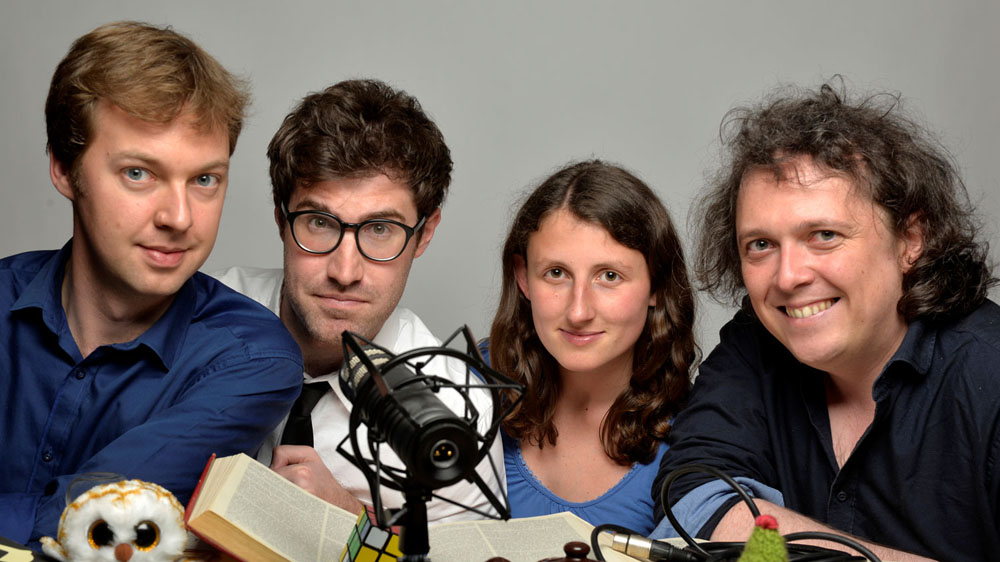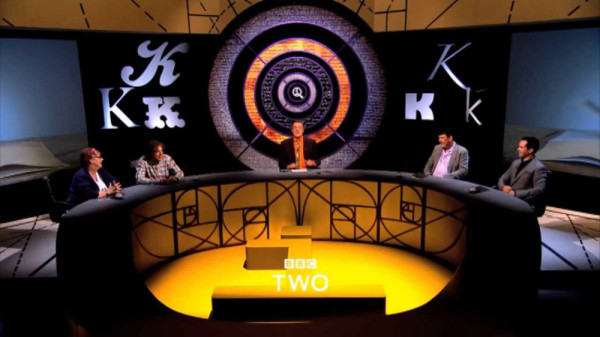It’s been an eventful year, with the double whammy of Brexit and Trump sending shockwaves around the world, while providing a goldmine of material for comedians and satirists everywhere.
In accordance with the notorious Chinese curse, we seem to be living in “interesting” times, so it’s hardly surprising that it’s also been a particularly busy year for the QI stable of programmes and its fact-hungry researchers.
After hosting QI for 13 years, Stephen Fry bowed out in February, and Sandi Toksvig took over for this autumn’s “N” season, moving seamlessly from her previous role presenting The News Quiz on Radio 4. Sister programme The Museum of Curiosity won a coveted Rose D’Or award for radio comedy, and the podcast No Such Thing as a Fish spawned a BBC Two spin-off, No Such Thing as the News.
It was a memorable year for space travel, with British astronaut Tim Peake returning in June after six months in space. A live stream from the International Space Station showed how rapidly the ISS moves across the earth, prompting QI elf Anne Miller to choose this fact as one of her favourites: “In the time it takes to listen to The Proclaimers’ ‘I’m Gonna Be (500 Miles)’, the ISS travels 500 miles, then 500 more!”
When the new polymer five pound note came out in September, the elves were amused to discover that Churchill looks grumpy on the note because the photographer who took the picture had just removed his cigar.

The second series of No Such Thing as the News featured a US Election Special in November, and a report that Donald Trump has a phobia of germs and hates to shake hands with anyone – an unfortunate handicap for a future President.
The four presenters – Dan Schreiber, Anna Ptaszynski, James Harkin and Andrew Hunter Murray – put out a call for submissions of interesting news items via social media, so it’s appropriate that one of their favourite facts of the year is that the word “Twitter” was a 19th-century word for an abscess on a horse’s foot.
Sometimes the “Quite Interesting” factor relies on an intriguing link between pieces of otherwise unrelated information. QI elf and ex-policeman Stevyn Colgan is fascinated by this subject, and has written a book entitled Constable Colgan’s Connectoscope. One of his fascinating finds relies on the link between two historical events: the launch of the London underground, in 1863, and the last public hanging, of Michael Barrett, at Newgate in May 1868. “I quite like the fact that you could have gone to see the UK’s last public execution by tube,” he says.
The elves read hundreds of books a year in search of material, so they approve of the fact that the video game Fallout 4 is set in a post-apocalyptic world where players are rewarded for returning library books.
This year saw the launch of the QI Book of the Year Awards, listing the top ten books for 2016. The Naming of the Shrew: A Curious History of Latin Names by John Wright is described as “the book that the QI Elves were fighting over during research for Series N”.
The book shows how some Latin names aren’t proper Latin at all, and gives examples of naming mishaps. The Hydrangea serratifolia has smooth leaves, but was wrongly named as having ‘serrated leaves’ because the sample examined had been nibbled.
For those whose thirst for information knows no bounds, the elves have sneaked their own book in at Number 10 on the list: 1,342 QI Facts to leave you Flabbergasted, by John Lloyd, John Mitchison, James Harkin and Anne Miller.
Here are three sample titbits from the book: emoji is the fastest growing language in history, tanks are exempt from London’s Congestion charge, and one in three children pretend to believe in Santa Claus to keep their parents happy.
Written by Angela Lord.

